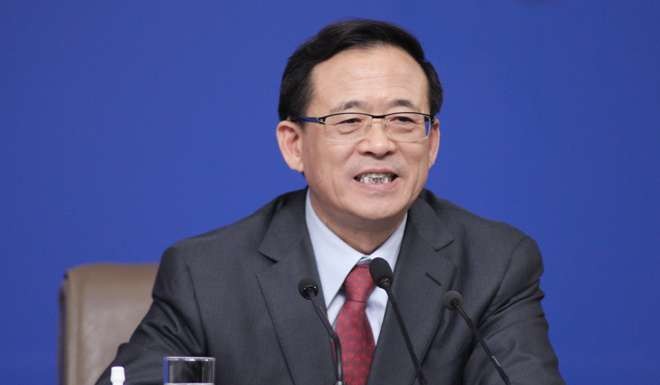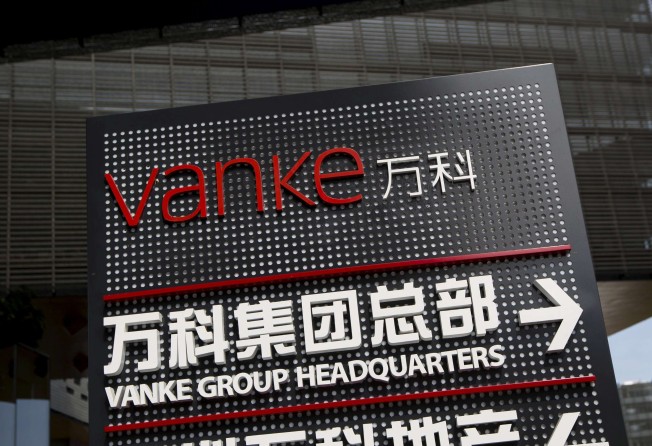
Regulator suspends product sales of insurers branded ‘barbarians’ for hostile buyouts
China’s insurance regulator cracks down on high-risk policies sold by insurers to fund aggressive acquisitions of listed firms

China’s insurance authority has clamped down on the products offered by insurance units under Baoneng Group and Evergrande Group, after their aggressive takeover attempts of listed companies upset financial regulators.
The move came two days after the chief securities regulator railed against cash-rich asset managers - many of them insurers - selling high-risk products to fund highly leveraged, unsolicited acquisitions, branding them “barbarians” and “robbers”.
Caixin reported on Tuesday evening that the Chinese Insurance Regulatory Commission (CIRC) has sent inspection teams to Foresea Life, a unit owned by Baoneng, and Evergrande Life, to scrutinise their corporate governance and financial health, and to check their products and use of capital are in line with rules.
It follows an announcement by CIRC on Monday night that it had suspended new universal life insurance product sales by Foresea, as well as the online sales of six insurers including Foresea and Evergrande Life - the insurance unit of property giant China Evergrande Group.
The reasons given for the suspensions included exceeding caps on issuing medium- and short-term investment products, misleading sales promotions on the internet and aggressive price competition in the settlement interest rates of universal life products.
Universal life products are essentially high-yield wealth management products that include a life protection component, and usually promising short-term gains. Unlisted companies have been rapidly expanding their businesses, increasingly buying in to the equity market to meet the high returns they’ve promised to investors.

Zheng Zhigang, a professor of finance at Renmin University, said: “The regulators could be deeply worried about two things. One is the risk of contagion spreading to the financial markets due to the duration mismatch issue for these Chinese insurers, and also these capital tycoons taking control of the listed companies, replacing real industry leaders.”
“Barbarian” has been a buzzword in China’s capital market since last year, when it was used by China Vanke’s founder and chairman Wang Shi to describe emerging insurance conglomerate Baoneng Group after it upped its stake to become the biggest shareholder in China’s largest property developer. Baoneng proposed to oust the board, including founder and chairman Wang Shi, after the management publicly opposed their buyout and barred them from the boardroom.
The ongoing battle for control of Vanke has been the focus of intense media coverage and has kept the nation gripped for over a year, as the homebuilder also contends with the unwanted overtures of rival China Evergrande Group, which lifted its own stake in the business to 14 per cent last week, after splashing out more than 12 billion yuan acquiring more shares.
Buyout attempts by Baoneng and other unlisted insurers, including Evergrande Life and Anbang Insurance, have intensified this year, threatening the control of existing management regimes in several listed companies.
Zheng said there were more than 100 listed companies with dispersed shareholding structures in China that are likely to become the targets of the “barbarians”.
Leon Qi, head of Greater China financials research at Daiwa Capital Markets, said, “CIRC is vigilant of the potential systemic risks arising from the aggressive sales (in terms of settlement interest rate and distribution channel) of universal products, and aggressive investments in some blue-chip stocks, resulting in liquidity mismatch of such life insurers’ assets and liabilities.”
“It seems chairman Liu has finally taken inspiration from the leadership to use a loud voice to awe aggressive acquirers like Baoneng,” said a state-owned mutual fund manager based in Shanghai, who wished to stay anonymous due to the “sensitiveness” of the issue.
“It creates no problem if insurers are making long-term value investment, but the reality seems the opposite - most of them are eyeing short-term financial returns, and the retail investors are most likely to suffer losses from this trick. This is the last thing Chinese leaders would like to see.”
The third-quarter earnings report of China Vanke shows Baoneng Group now owns 25.4 per cent of its shares.
On November 16, seven senior managers including the chairman and CEO of CSG Holdings, a leading glass manufacturer listed in Shenzhen, resigned from their positions after Baoneng took control of the company two months earlier.
Last Wednesday, Shenzhen Gree Electric Appliances, China’s largest manufacturer of air conditioners, said Baoneng had become its third biggest shareholder with a 4.13 per cent stake. Baoneng bought the shares between November 17 and 28, according to a filing to the stock exchange.
On November 24, Shanghai-listed China State Construction Engineering Corp (CSCEC), one of the world’s largest builders, said in a filing that Anbang Insurance had bought 3 billion of its shares in a week, to become its second biggest shareholder with a 10 per cent stake.
In early November, the CIRC summoned Evergrande Life and “explicitly expressed its unsupportive stance” about its speculative, short-term trading of stocks.